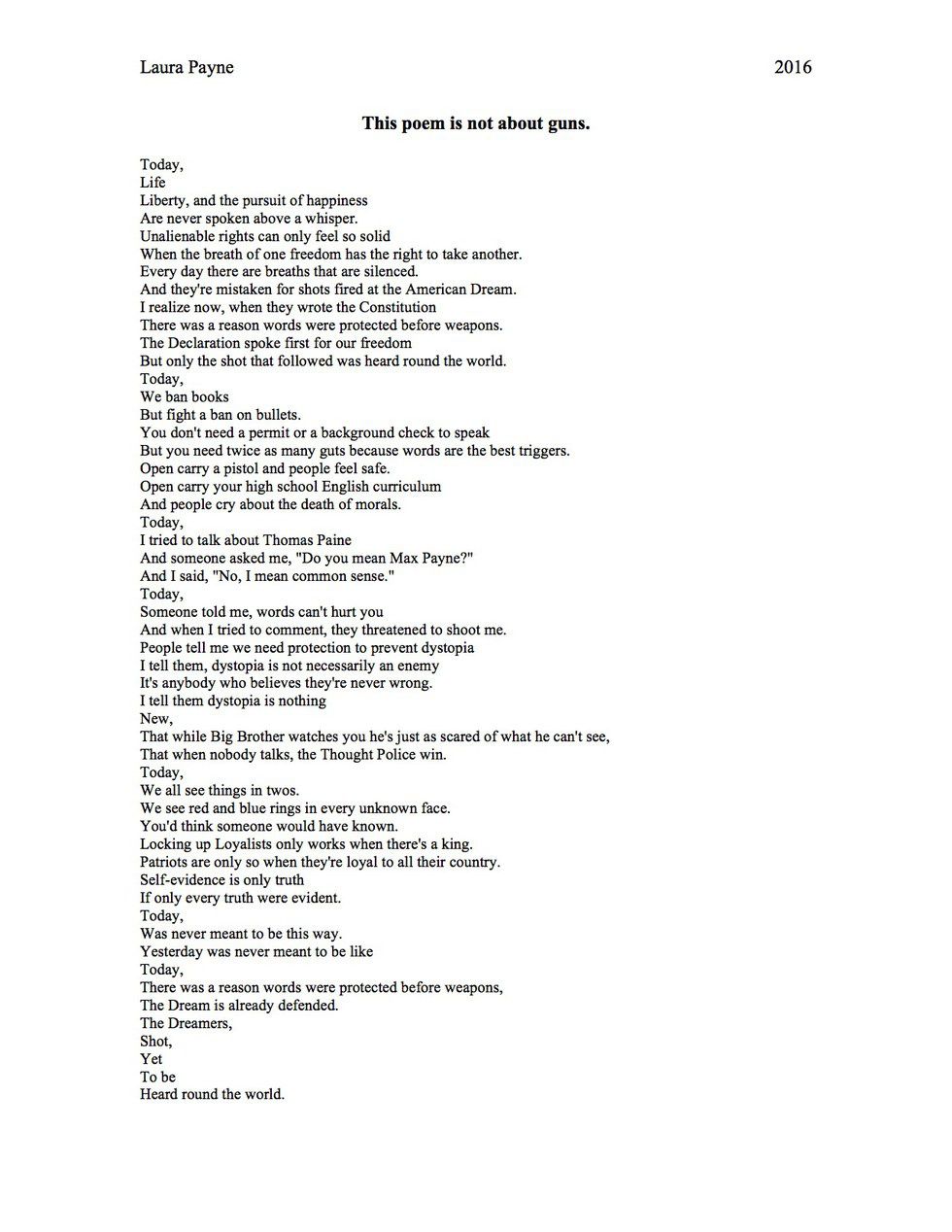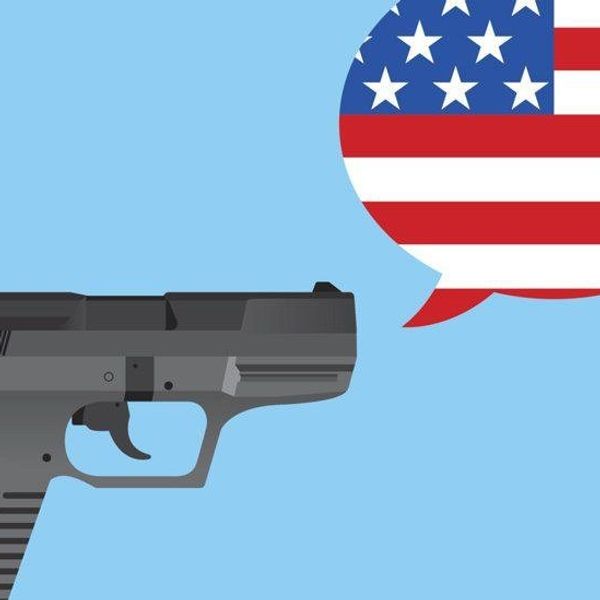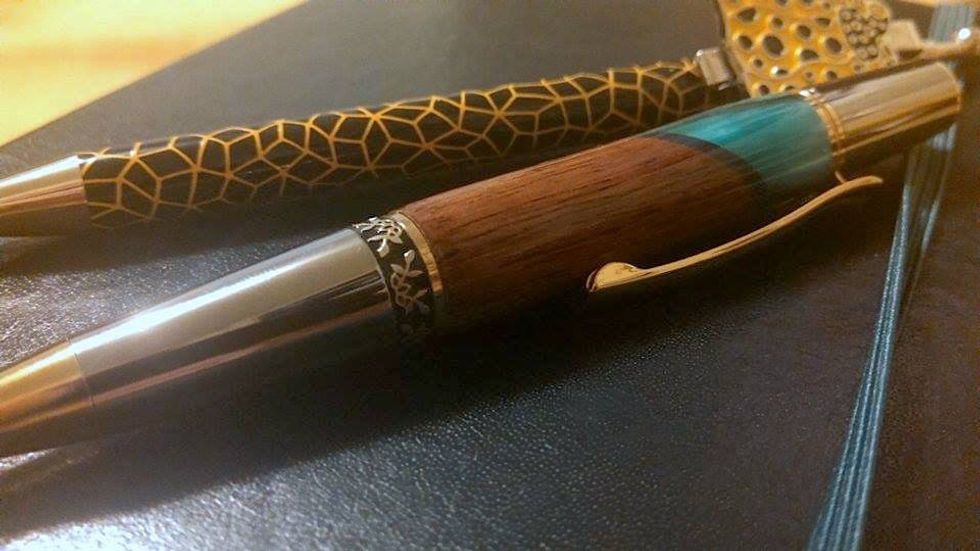When I talked to fellow Southern Oregon University student and poet Laura Payne, we discussed when we should meet and talk about our poems for poetry slam. One of her poems she wanted to read was "This Poem is not About Guns," a poem tackling the subject of gun violence. Payne wrote this piece while she studied abroad in Japan and a shooting happened at a community college in Oregon, her home. She was so effected by the news that she wrote this piece on her opinion about gun violence. She wrote about how people used to kill lives like how words can hurt a person's feelings. Not only is she a talented poet, Payne is studying to become a teacher after college and she wants to educate her future class with her words.
I had the chance to do an interview with Payne through emails on her poem, recent shootings and how she wants the readers to know about gun violence.
Why did you want to write about gun violence?
I'm going to be a teacher someday so anytime a shooting happens at a school, I think to myself, "I'll probably be at a school when this happens. More than anything, though, I wrote about gun violence because I'm frustrated with how people talk about it. With every other disaster, the victims are the face of the issue and people throw them all into making sure no more victims fall to a similar tragedy. This isn't the case with gun violence. Every time a shooting happens, the victims are largely ignored in favor of debating gun control. Which I think is moronic because instead of talking about all kinds of ways to keep people safe, it seems like hope for progress rests on a highly polarized issue that people fight tooth and nail for.
When did you write "This Poem is not About Guns?"
I wrote it when I was studying abroad in Japan, right after I heard about a shooting at a community college in Oregon, my home state.
You wrote this poem while you were studying in Japan. How did the subject of gun violence effect you and your peers in Japan?
When I got to class that day--we started each day off with sharing news stories—my professor immediately looked to me and asked if I had heard about the shooting in Oregon. I was shocked that she had heard about it because I didn't think it would make international news. In the weeks that followed, a lot of friends from Europe and Asia started asking me about guns in America. One of my friends, from the Netherlands, made a comment that she was scared to visit America because she was afraid of getting shot.
A line has stuck with me the most was "While Big Brother watches you he's just as scared of what he can't see/That when nobody talks, the Thought Police win." Big Brother is a reference to the reality TV series of the same name. How did you make connection to the idea of filming vs. seeing mass shootings?
That line actually refers to the figurehead Big Brother from George Orwell's "1984." I wanted it to relate to my line that reads, "People tell me we need protection to prevent dystopia." One of the biggest arguments I hear to take down gun control is that people want guns for protection. What people fail to talk about, though, is that possessing guns isn't the only way to be protected. For example, technology exists for safer gun ownership and storage but no one talks about this because everyone thinks anything related to safer guns is about banning them. No one is talking and so the "thought police"—who these are is up to interpretation—are winning.
The Orlando shooting happened recently. Lives of 49 people were taken. Singer Christina Grimmie was gunned down. With all these shootings happening including events from Trayvon Martin, how do you want your readers to take away from your poem?
That's what I hope more than anything is that this poem sparks conversations; especially ones that break down barriers of polarization. The ones at fault for shootings are not those who wish to ban guns, those who wish not to ban guns, nor anyone else except the shooters themselves. At the end of the day, everyone wants to make sure they and their loved ones are safe. I want people to realize that and come together so that we can do what really matters and prevent shootings from happening again.
This also ties with Black Lives Matter, lives of LGBTQIA+ community, police brutality, and conversation on who is really at fault on events like mass shootings. They're all connected to a single bullet or more. Would you say that your poem will open more conversations about this topic and reach out to the communities who are effected by this?
It did. Whenever a conversation about America came up, people usually came to me. We talked about a lot of major issues, like immigration and cost of education. It was interesting to compare our home countries and talk about how things could be better. As far as talking about gun violence went, I often got questions about why Americans were so adamant about keeping guns. I explained the Second Amendment and things like that and most people I talked to understood the reasoning behind it. But we all agreed that the attitudes surrounding guns were extremely dangerous because no one was willing to compromise or understand each other.
Your poem not only talks about gun violence but also words vs. action. You sound like you have a strong opinion on this. Can you elaborate?
Again, my main hope for this poem is that it will spark conversation. Plenty of people want to stop gun violence but the way we talk about it is counter productive to anything we want to accomplish. Gun violence is something that affects a number of people every day. For something this big, nothing will get done if we keep acting like we're the only ones who want to stop it.
Why do you think words vs. action ties in with today's gun violence and mass shootings? Is there anything you like to add about your poem or opinion on gun violence?
Just that the next time readers talk about gun violence, I hope they talk about it differently. I hope they talk about ways to keep people safe that have nothing to do with guns and ways to keep people safe that have everything to do with guns. I hope they talk with democrats, republicans, non-party-affiliated people, everyone; because if anything is going to get done, I believe everyone has to come together to do it. We can start by changing the way we talk.
Here is Laura Payne's new "This Poem is not About Guns."

Please support Laura Payne on her education and poetry as well as keep the conversation on gun violence.





















